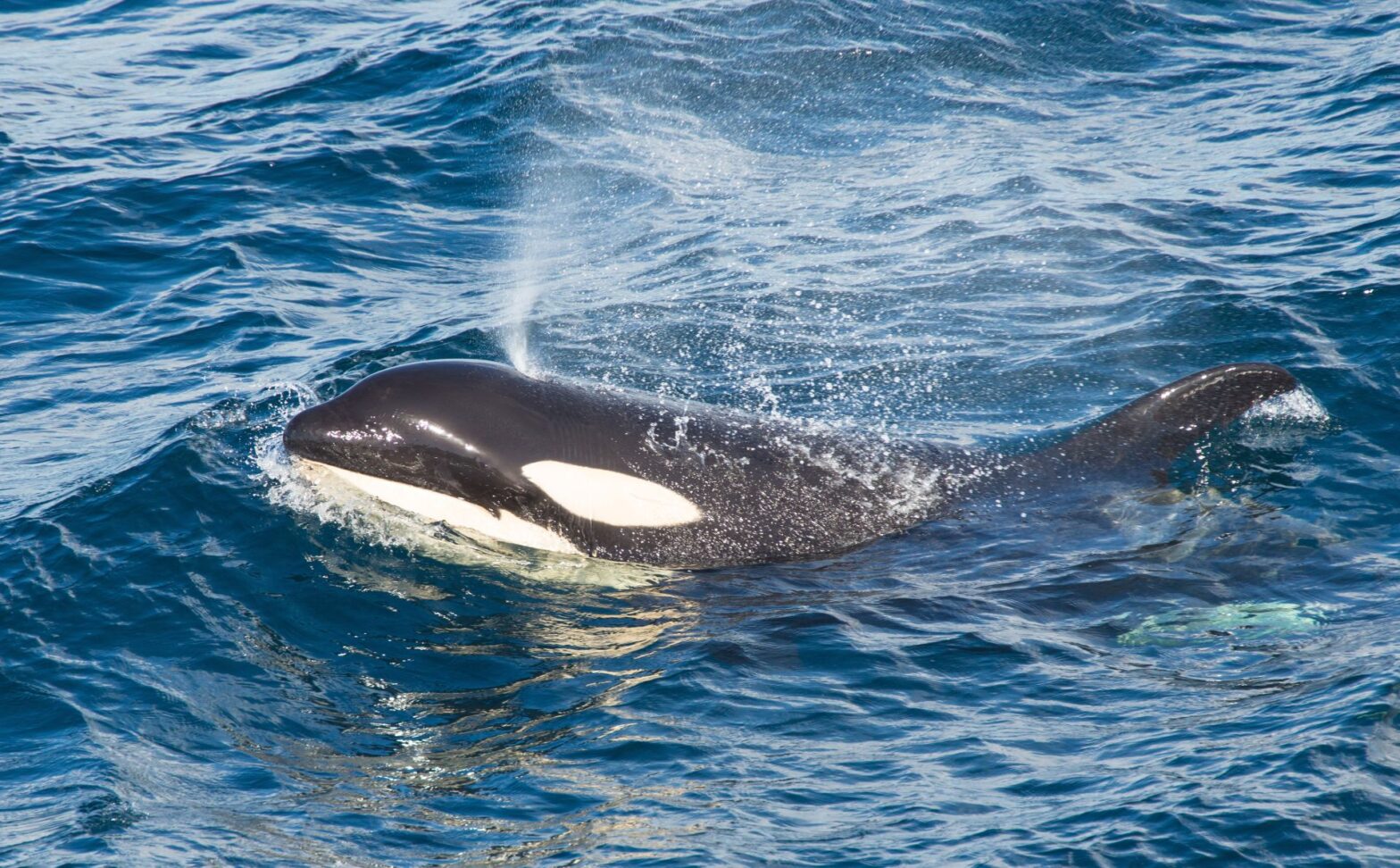Sailors shoot at critically endangered Orcas in Spanish waters
One subpopulation of orcas in southern Europe, known as the Iberian population have recently become famous because of interactions with vessels that have left some damaged and a small number have been lost. OceanCare has just learned, by today’s reports in Spanish media, that the crew of one sailing yacht has recently shot at a group of orcas in an incident that the organisation finds outrageous and unacceptable. The incident is reported to have happened on the 17th of August.
“We are outraged by this event of violence against these critically endangered whales. We deplore this violent response and asks that the media and others to stop describing the behaviour of the orcas interacting with boats as violent and that the animals are seeking some form of revenge. There is no evidence for this and it is far more likely that this is a form of play or social behaviour. Painting the animals as vengeful or evil will only encourage violent responses such as this to them” says Carlos Bravo, Ocean Policy Expert at OceanCare, based in Madrid.
Mark Simmonds, OceanCare’s Director of Science adds: “It is really important that people appreciate that this behaviour has never been seen before and has only even been exhibited by this one small and critically endangered population. It is not known from anywhere else in the world and wild orcas have never been known to directly attack human beings. We are not on their list of prey items.”
The orcas exhibiting this robust behaviour towards boats come from the distinct ‘Iberian subpopulation’ of less than 50 animals and because of the low number of adults and a low recruitment rate, this subpopulation is classified as Critically Endangered by the IUCN Red List of Endangered Species. It is not known at this time if this violent attack on the orcas has harmed or killed any of them, but that Spanish authorities have already responded. OceanCare congratulates the Servicio de Protección de la Naturaleza (Nature Protection Service, SEPRONA) of the Guardia Civil for the rapid identification of the perpetrators of the shooting of a group of orcas in waters near Tarifa (Cadiz) in the Strait of Gibraltar.
The events that led to SEPRONA’s action occurred last Thursday, August 17th in waters near Tarifa (Cadiz). Thanks to a video recorded by a boat belonging to a whale watching company in the area, it was possible to document how the crew of a sailboat which was sailing nearby shot several times a group of killer whales. The SEPRONA investigation was initiated through the internal channels of the Guardia Civil and through the widespread dissemination of a video in social networks, including actively by the animal rights party PACMA.
As a result of this, SEPRONA agents located the boat and its occupants in the port of Almerimar (El Ejido) and searched the boat for pyrotechnical, explosive or any other type of elements which could be used, but they did not find any more, according to published information.
The Iberian orca population is distinct from other orcas in the Northeast Atlantic and not all of the orcas in this subpopulation interact with boats.
This Critically Endangered status was decided based on the very number of adult individuals and the fact that the whales heavily depend on an endangered prey species (the Atlantic Bluefin Tuna). The population also exhibits very low recruitment (a low number of young individuals) and may be in decline. Chemical pollution may be negatively affecting their reproduction and, like other whales and dolphins in the north-east Atlantic, these animals will be exposed to multiple negative human caused stressors including noise, marine debris and bycatch. Orca are also listed as a vulnerable species in the Spanish Catalogue of Endangered Species (CEEA), so any action carried out with the aim of killing, capturing, chasing or disturbing them is absolutely forbidden.
Several days ago OceanCare had already issued a statement of concern calling on people to act with caution and respect when encountering the Iberian orcas.
Tweet with Video about the Incidence
Sie sehen gerade einen Platzhalterinhalt von Standard. Um auf den eigentlichen Inhalt zuzugreifen, klicken Sie auf den Button unten. Bitte beachten Sie, dass dabei Daten an Drittanbieter weitergegeben werden.
